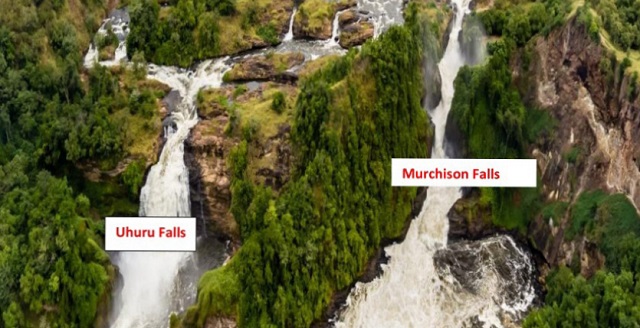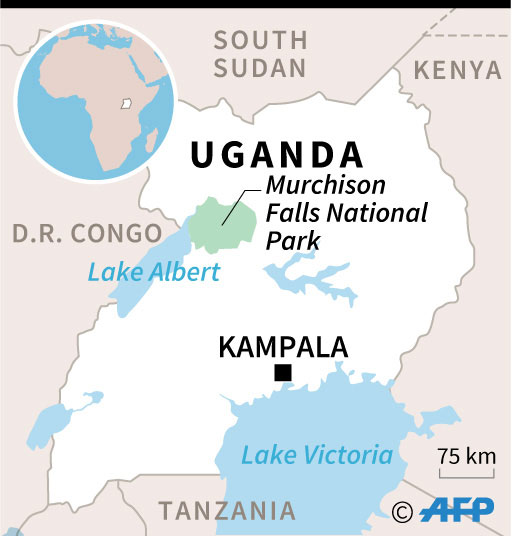
Do a thorough due-diligence on Bonang Power, government told
Kampala, Uganda | RONALD MUSOKE | Fifteen civil society organizations (CSOs) have asked the Electricity Regulatory Authority (ERA) to share details with Ugandans that show South African energy firm, Bonang Power and Energy Pty Ltd, is technically capable and financially sound to undertake a feasibility study for a hydro electricity dam that is located in an environmentally sensitive area.
In a letter dated Dec. 06 and addressed to ERA’s Chief Executive Officer, Eng. Ziria Tibalwa Waako, the CSOs also asked ERA to provide information that show that Bonang Power was procured to conduct a feasibility study for a dam at Uhuru Falls.
The Civil Society agencies include; the Guild Presidents’ Forum on Governance (GPFOG); Citizens Concern Africa (CICOA); Action Coalition on Climate Change (ACCC); South Western Institute for Policy and Advocacy (SOWIPA); World Voices Uganda (WVU); Oil Refinery Residents Association (ORRA) and Africa Institute for Energy Governance (AFIEGO).
Others include; Great Lakes Institute for Strategic Studies (GLISS), Centre for Constitutional Governance (CCG), Twimukye Women’s Organization, Graffen Organization –Butimba, Youth Action for Environment –Kiryandongo, Centre for Energy Governance, African Initiative on Food security and Environment and Water and Electricity Consumers’ Association.
This follows ERA’s notice published on June 07 stating that Bonang had applied for a permit to carry out a feasibility study on a 360MW power project near Murchison Falls.
ERA said, it had received a notice of intended application of a licence from Bonang Power and Energy (Pty) Ltd for the generation and sale of electricity from a hydro power plant proposed to be established near Murchison Falls in Kiryandongo and Nwoya Districts.
However, the notice drew uproar from the Ugandan public. Civil society organizations (CSOs), cultural institutions, communities, conservationists, tour operators demanded that the Murchison Falls be spared for a hydropower dam construction.
Prof. Ephraim Kamuntu, the outgoing minister of tourism said cabinet had agreed to stop the planned dam at Murchison as it would affect the scenery, beauty and the falls.
But on Dec. 03, Irene Muloni, the immediate former energy minister said during a media briefing in Kampala that the government had signed a memorandum of understanding with Bonang Power to undertake a detailed feasibility study to establish whether a hydropower dam at Uhuru Falls in Murchison Falls National Park could co-exist with tourism.
Muloni said the dam will not be constructed at Murchison Falls but rather adjacent to it at Uhuru Falls which is a distance of 500 metres apart. Muloni said Uhuru Falls and Murchison Falls are separate falls that are adjacent to each other.
“In order to make a scientifically informed decision, cabinet reviewed its decision yesterday (Dec.02, 2019), and agreed that a feasibility study is undertaken on the Uhuru falls site.”

“In making the decision, cabinet considered the need to have the feasibility study undertaken because that is the only scientific way to determine the impact of the project on the environment, tourism and ecology at the proposed site,” Muloni said.
The minister explained that the feasibility study will help determine the technical, environmental, social, economic and financial viability of the project and whether to undertake it or not.
The government will ensure through supervision of the feasibility study so that its interests are taken into consideration including benchmarking where similar projects have been previously undertaken in ecologically sensitive areas,” Muloni said.
Prof. Ephraim Kamuntu complemented Muloni’s comments, saying that the government is committed to ensuring Uganda’s natural endowment remains.
“I want to assure you that conservation of the environment and natural endowment is not a choice for anyone but a duty for everyone. You should never doubt the commitment of the government in the conservation of natural endowment,” Kamuntu said.
Bonang Power’s capacity
But it appears several civil society organizations remain skeptical. The CSOs say they are raising the red flag on Bonang following their investigation of the South African company. They say their investigation has revealed that Bonang’s experience in developing hydropower dams is questionable.
“No reliable information on the dams that the company has developed is available. The company’s website is also down and its physical address is a shared working space, raising questions about the company’s willingness to promote transparency,” notes the letter which was also copied to various heads of government including the Prime Minister and Speaker of Parliament.
“The signatories to this letter suspect that Bonang is a front for corrupt Ugandan officials and unless ERA, which is Uganda’s only mandated energy sector regulator, undertakes due diligence and informs Ugandans about Bonang’s technical and financial capacity, the Murchison and Uhuru Falls will be destroyed.”
The CSOs’ investigations show that Bonang Power and Energy (Pty) Ltd was founded on Jan.16, 2014 with a registration number 2014/008439/07. However, the company was deregistered on April 11, 2016 due to failure to file annual returns. It was again re-registered on Dec. 5, 2017.
A search on the company’s physical location reveals little to nothing, the CSOs say. Before the company’s website was pulled down, the listed physical address on its website was 195 Jan Smuts Avenue, Randburg, in South Africa but a further scrutiny of the physical address reveals that in fact, the mentioned address, is a commercial property that also offers co-working and virtual office space.
The CSOs investigation of the hydropower works that Bonang Power and Energy Ltd has undertaken reveals unconvincing results. On its website before it was pulled down, the company listed hydropower projects that were ongoing in Africa.
However, the company’s links to those hydropower works was unclear as the company did not mention any dam that it is developing across the continent.
The CSOs argue that a company that seems to have no office of its own, lacks a web presence, lacks clear information on what hydro power projects it has undertaken cannot be trusted with one of Uganda’s most prized tourist attractions— the Murchison and Uhuru Falls.
“We cannot let a company whose track record on construction of hydro power dams is unclear to touch the iconic Murchison Falls, which are visited by over 30% of the 100,000 tourists that visit Murchison Falls National Park.”
 The Independent Uganda: You get the Truth we Pay the Price
The Independent Uganda: You get the Truth we Pay the Price



